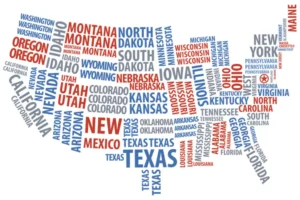The word stewardship is a little like the word sin. You just don’t hear it outside of a church that often. So I was a little surprised to hear it come at me from one of the local country radio stations the other day.
“Stewardship! Did that guy just say stewardship?” I mumbled as I flipped the volume up a couple of notches.
Since writing about stewardship is my job, my posture immediately became that of a pure-bred hunting dog catching a scent. Eyes straight ahead, ears perked up, not a quiver.
Yep, I was right. He said stewardship. And “that guy” turned out to be the governor doing a PSA. Evidently, it was official Natural Resource Stewardship Week so the governor wanted to encourage me to “reflect on the importance of conserving and protecting our soil, water, air and wildlife habitat.”
I was intrigued, so as soon as I pulled into the drive, I headed straight to the computer.
Turns out that this “stewardship week” was promoted by the National Association of Conservation Districts (NACD) — which began promoting these weeks across the nation in 1955.
“The concept of stewardship involves personal and social responsibility …” their website states.
OK, sounds good.
“… We have a duty to learn about and improve natural resources as we use them wisely …”
Umm …
“By doing this we can achieve material and spiritual growth in our own lives, and leave a rich legacy for future generations.”
Yeah, you lost me.
I should have known when I saw an emblem of an owl holding the earth is his hands that this wasn’t going to be a meeting of the minds. There’s certainly nothing wrong with challenging communities not to pollute their soil and water. But it was a good example of where the world and Christians differ — and should.
Same Word, Different Meaning
Christians and non-Christians may use the same word — stewardship. But, most often, it’s not synonymously. The dictionary definition of stewardship is “the responsibility for taking good care of resources entrusted to one.” But that brings up two questions. First, resources entrusted to us by whom? The second, why?
The first question gets a little sticky for the world. They certainly don’t want to acknowledge God; that would bring up all kinds of uncomfortable questions and conclusions. Instead, they’ll often use fuzzy words like “duty” or “higher calling,” but carefully avoid just exactly who that duty is to or who that calling is from.
In their hearts, the answer may differ. They may believe in fate, or evolution, or even a common conscience. But listen carefully when they talk about stewardship, because it will eventually lead to one thing — ourselves. We should do this or that for our own benefit. They may even throw in future generations, but the bottom line is that it’s for us.
For Christians, the answer to the first is simple: Our resources have been entrusted to us by God. Stewardship means, simply, that we are stewards — managers. We don’t own this life or anything in it. It is His.
As God told Job, “Everything under heaven belongs to me.” So our time, our talents and our money shouldn’t be used to please ourselves, but in the way that would please Him. To borrow from Rick Warren, it’s not about me. It’s about Him.
Then there’s the second question: Why? Why have we been entrusted, and why should we take good care of things?
Again, for the non-Christian, the answer gets back to self. In industry, we should steward our products and employees because it is good for the bottom line. In environmental activism, we should steward because it preserves our home and our health. In finances, we should steward because it makes us feel better and provides us with security.
It’s a stewardship for me and about me. There may be benevolent feelings abounding, but the ultimate reason is self.
A Christian, however, understands that security, prosperity, home, health and peace are all in God’s hands, not our own. So why did God entrust us with His resources? The answers are numerous. For our own benefit, to learn to worship the Lord more (Deuteronomy 14:22-23); to win others to Christ (Luke 16:9); to support the Lord’s workers (Philippians 4:14-19); sharing with those in need (Acts 4:32). But the bottom line answer for Christians is that we are to use our resources for God’s kingdom work.
What Can I Do?
So how can I develop that “It’s about Him” attitude?
One is to take a look at or make a list of all you possess. Then, while you look at it all, say out loud, “God owns it all!”
It did, I admit, feel a little silly walking through my house proclaiming that God owned it all. But it also gave me a little bit of an attitude check. That’s not my couch. It’s His. If He wants me to keep it, I will. If He wants me to fill it with unchurched neighbors I haven’t met yet, I will. If He wants me to sell it, well, I admit that will be hard, but I will.
It reminded me of a new gadget supposedly set to revolutionize the car leasing business. Evidently, they can now install devices in cars which will keep the car from starting if a car payment isn’t made on time. A small light flashes to let the driver know that they only have a few days left. Then, no payment, no driving.
I would imagine that little light brings some anxiety, but it is also a stark reminder of who exactly owns that car. It’s not the driver. It’s the financer.
Makes me think I need a little light flashing on my bank account to remind me exactly who owns it, too.
Another exercise is to, as part of your devotional time, write a paragraph on “I am, or am not, at peace with the way I manage my resources” and explain why. When we ask ourselves the simplest questions is often when we get the truest answers.
Be Cautious
Since a Christian’s basic understanding of stewardship is so different than the world’s, it also means we need to be cautious.
Worldly financial advisors may often agree with Christian financial principles. But before I act on any advice, I need to know what perspective that advice is coming from. If it’s based on a “this is best for me” mentality rather than a “this is best for Him” mentality, I need to be wary.
Further, I just need to ask God. Even the wisest financial counsel won’t match God’s wisdom.
The world may tell me that buying a home is a great investment. And it may be. But what if God has plans to move me in a year? Only He knows that, and if I don’t make it a priority to ask Him, I can make decisions that may tie my hands for doing His work.
I know that far too often I will crunch numbers on a financial decision before I hit my knees in prayer. And, too often, I’ve seen that the “traditional” wisdom and the calculator were wrong, and that all I needed to do was ask God.
Making My List
It’s important, too, that I recognize stewardship not as a list, but as a lifestyle.
As a list maker, it’s easy for me to get my mental stewardship “to do” list in order. Tithing? Check. A little extra for missions and the new church construction? Check. Paid off debt? Check. Paid off the mortgage? Umm, well. Great! Stewardship is taken care of, and I can move on to something else.
But it shouldn’t be that way. Giving to God’s work and to His kingdom is just as much a part of worshipping Him as is daily devotions, praising Him or prayer.
I don’t know when you’ve heard stewardship brought up in your church, but I’ve often heard it during annual tithing drives and building campaigns. There’s certainly nothing wrong with bringing up stewardship at those times, but when we only think of stewardship in the “big ticket” times, we may forget that it’s an every day pursuit of God’s will.
That radio commercial wasn’t a life changer for me, but it was a reminder. A reminder that I need to be different from the world. A reminder that He is the owner, and I’m just the steward. And a reminder that I need to be faithful with the trust I have been given.
Copyright 2006 Heather D. Koerner . All rights reserved.










